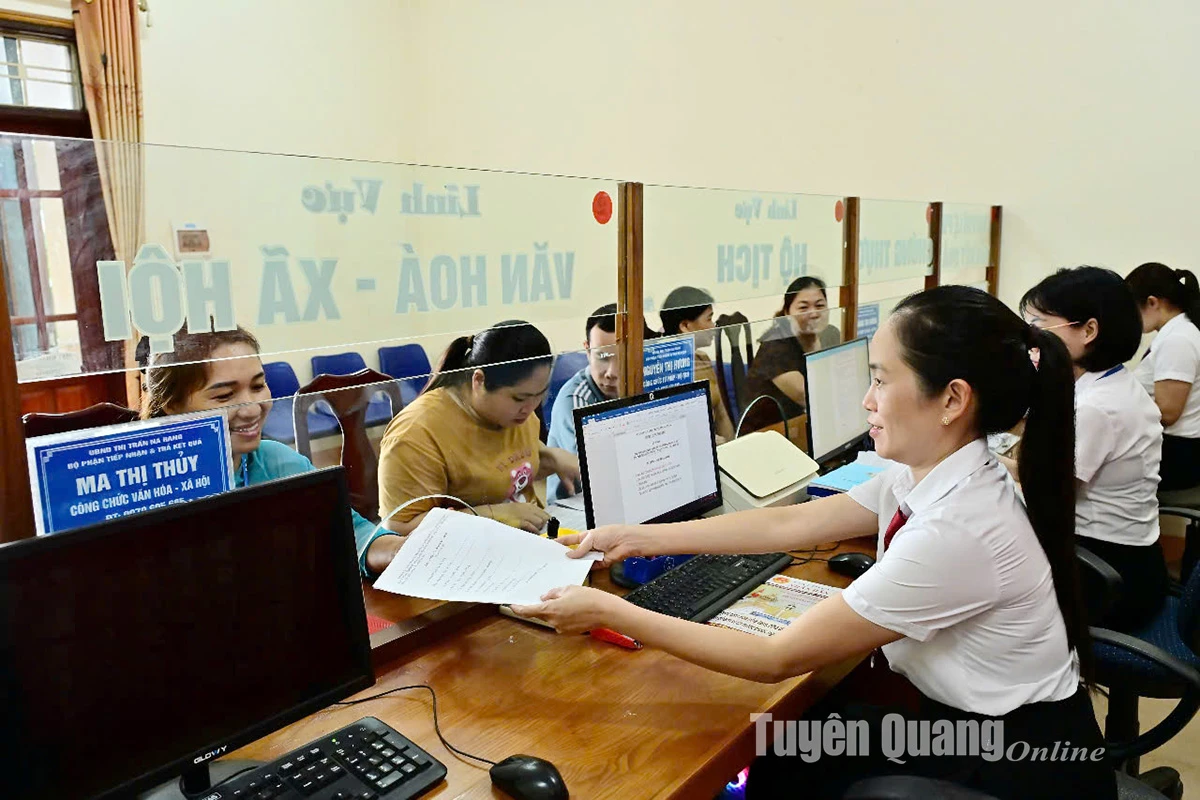Adapting to serve better
Amidst administrative reform and staff streamlining under the two-tier local government model, commune-level officials are taking on multiple roles at once - from land management, civil status registration, and cultural-social affairs to disaster prevention, security, and grassroots communication. Holding multiple responsibilities has become a common reality rather than an exception in many localities.
 |
The greatest challenge lies not only in the heavy workload but also in the increasing demand for professional competence. A cultural officer may concurrently handle population and communication tasks, even assisting with disease prevention. Meanwhile, land and construction officers often deal with land records, planning, and public environmental complaints.
In this context, adaptation is essential. Commune officials need cross-disciplinary training, regular knowledge updates, strong organizational, interdepartmental coordination, and digital skills. Many communes have proactively applied administrative management software, internal Zalo groups, and electronic work schedules to reduce pressure and improve efficiency.
However, adaptation should not mean accepting overload. The State should adopt specific support policies such as increasing allowances for multi-tasking officials, supplementing personnel based on local needs, and creating opportunities for continuous learning and professional development. At the same time, citizens should share understanding, cooperate, and respect the time and efforts of grassroots officials who work tirelessly to keep the administrative system running smoothly.
Commune officials are not only policy executors but also bridges between the government and the people. Their ability to adapt effectively to multiple roles enhances administrative efficiency and contributes to building a people-centered government that is close to and works for the people.
Duc Anh





READER COMMENTS